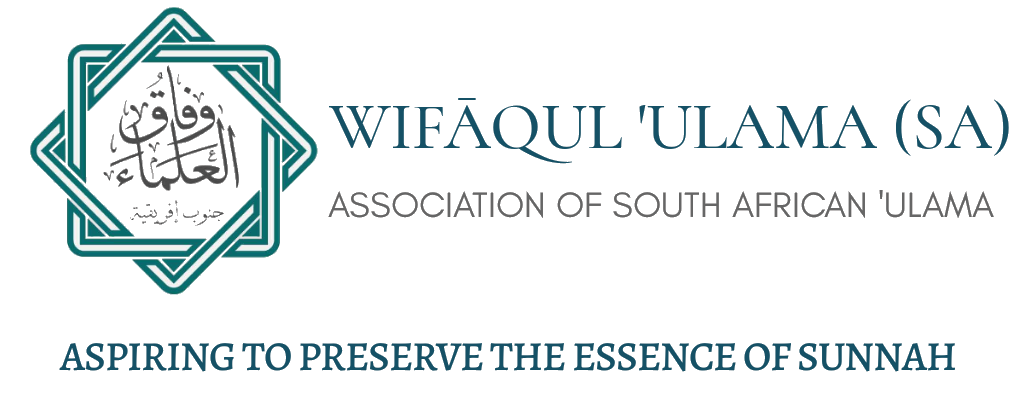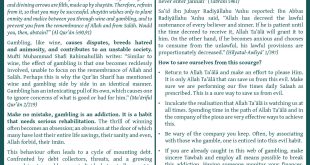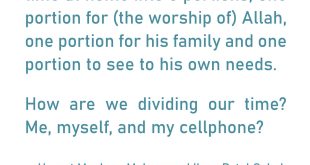A common justification is that living in a minority Muslim community, interfaith prayer participation is justified as a necessary compromise to achieve broader social objectives and integration. Let us evaluate this argument in light of the Shari’ah.
There are two Shari terms in this regard:
Mudārāt refers to temporary, tactical cooperation in non-essential ‘worldly’ matters to achieve a greater good or avoid harm.
Mudāhanah means compromising or agreeing to something fundamentally contrary to Islāmic principles. This is completely forbidden.
Does interfaith prayer fall under permissible accommodation (Mudārāt) or forbidden compromise (Mudāhanah)?
Allamah Qurtubi Rahimahullāh explains: “The difference between “Mudārāt” and “Mudāhanah” is: “Mudārāt” refers to forfeiting a worldly benefit to attain some other benefit which relates to either Dīn or Dunya or both Dīn and Dunya. This is permissible and, at times, even encouraged. While “Mudāhanah” refers to compromising one’s Dīni values to attain a worldly benefit.” (which is obviously not permitted)
Hafiz Ibn Hajar Rahimahullāh further illustrates this difference: “Mudāhanah” refers to interacting with a sinner in such a way that it appears one has no issue with the sin that is being committed, i.e. without forbidding the sinner from his sin. On the other hand, examples of “Mudārāt” are showing kindness to an ignorant person to teach him Dīn or being gentle with a sinner when forbidding evil.
Does attending an interfaith prayer fall under “Mudārāt” or “Mudāhanah”?
The question is, does interfaith prayer participation require sacrificing worldly interests or diluting religious convictions? Undoubtedly, by participating in an interfaith prayer, there is a compromise of fundamental Islāmic principles.
The Noble Qur’ān commands individuals to move away from gatherings where others are invoked besides Allāh Ta’ālā. These gatherings incur Allāh Ta’ālā’s wrath. Allah Ta’ālā explains the severity of their utterances in the Qur’ān Karīm: “They (the disbelievers) say: “Ar Rahmān has taken a child. You have certainly made an outrageous claim (This statement is so grave that) the heavens are about to burst, the earth about to split apart, and the mountains set to crumble to pieces, in protest of them attributing a son (offspring) to the Most Compassionate. (Al Qur’ān 19/88-91)
Hazrat Ibn ‘Abbās Radiyallāhu ‘Ānhu stated, ‘Associating partners (Shirk) with Allāh Ta’ālā strikes terror into the heavens, earth, mountains, and all creation, except humans and jinn. The magnitude of Allāh Ta’ālā’s greatness nearly shatters them (when anyone upon the earth ascribes a partner unto Allāh Ta’ālā). (Tafsīr Tabari, Al Qur’ān 19/90)
Thus, it is clear that one’s presence in an interfaith prayer compromises the fundamentals of Dīn. This will, therefore, fall into the category of Mudāhanah (compromise in Dīn) and thus be totally impermissible.
It is unbecoming of a Muslim to participate in or remain in a gathering where Allāh Ta’ālā and His Messenger Sallallāhu ‘Ālayhi Wa Sallam are disrespected or blasphemed! Would anyone remain in a gathering where their parents are being abused? Would any person tolerate a gathering wherein his wife is dishonoured?
Once, Hazrat Abu Bakr Radiyallāhu ‘Ānhu asked Nabi Sallāllāhu ‘Ālayhi Wa Sallam to teach him a Du’ā which would save him from Shirk. Nabi Sallāllāhu ‘Ālayhi Wa Sallam said: “Recite:
اللَّهُمَّ إِنِّيْ أَعُوْذُ بِكَ أَنْ أُشْرِكَ بِكَ وَأَنَا أَعْلَمُ، وَأَسْتَغْفِرُكَ لِماَ لَا أَعْلَمُ
“O Allāh, I seek Your protection that I ascribe partners to You knowingly. And I seek Your forgiveness from that which I do not know.” (Al Adabul Mufrad 716)
May Allāh Ta’ālā grant us the ability to uphold Dīn in its original form as taught to us by our beloved Nabi Muhammad Sallāllāhu ‘Ālayhi Wa Sallam. Āmīn
18 Jumādal ‘Ula 1446
19 November 2024
A0046/3
 Wifāq ul Ulāma (SA) ASSOCIATION OF SOUTH AFRICAN 'ULAMA
Wifāq ul Ulāma (SA) ASSOCIATION OF SOUTH AFRICAN 'ULAMA


